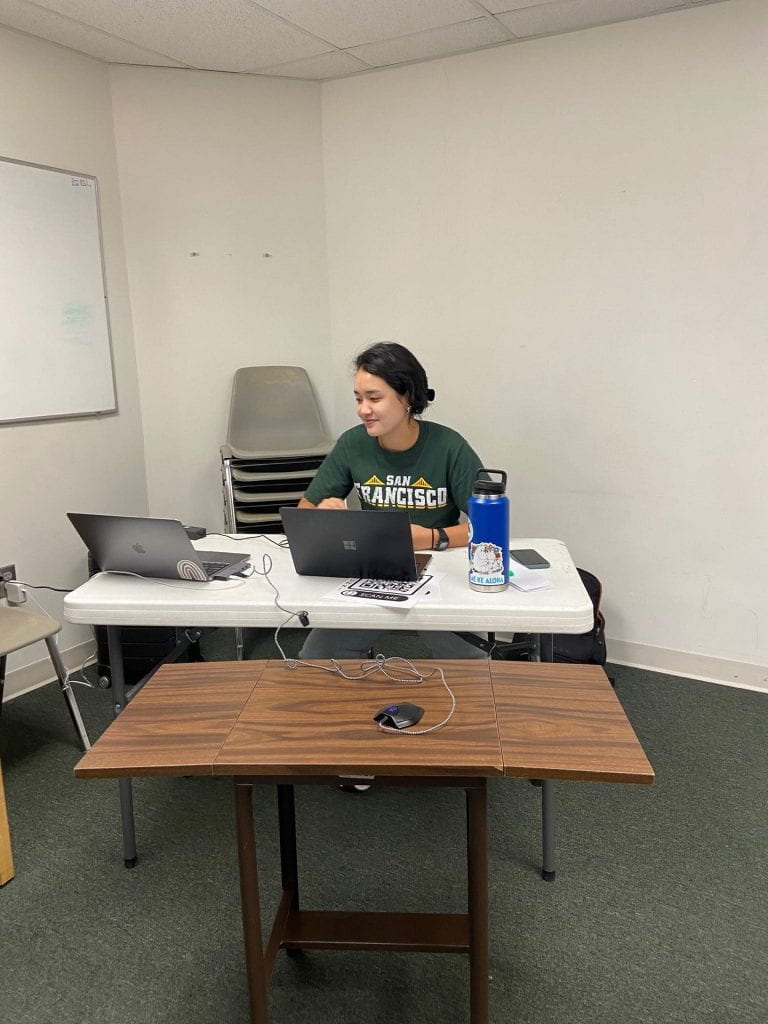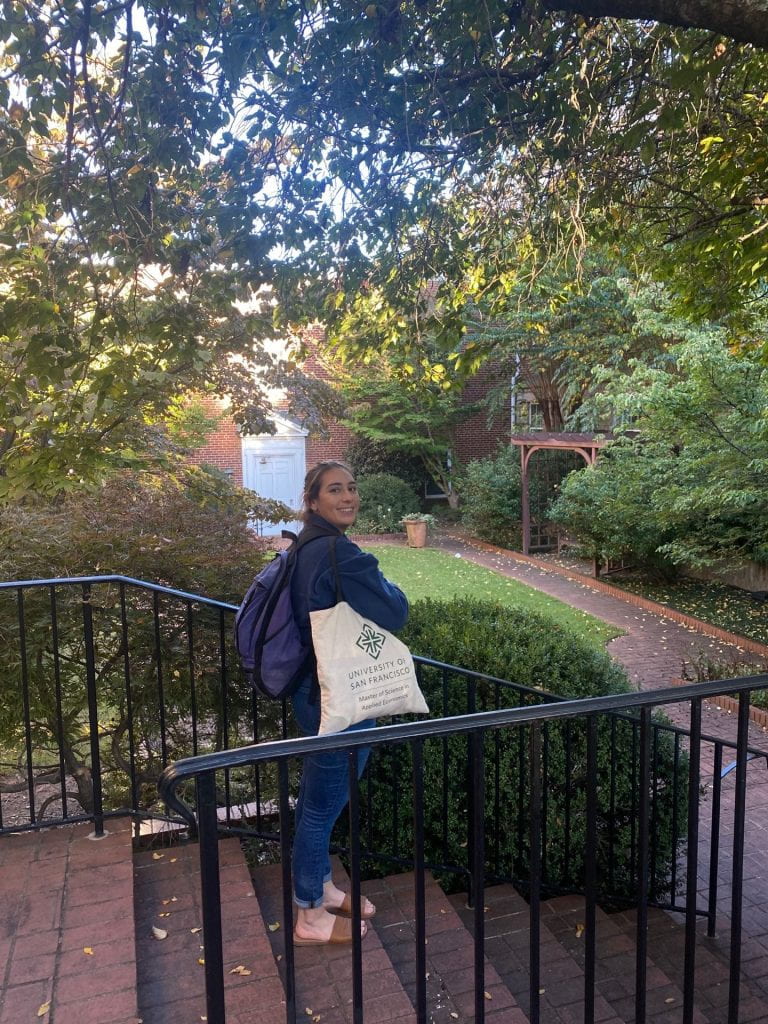Authors: Alexa Nava and Laura Pettinger, MS IDEC’23
This past Fall, two of our IDEC students, Laura Pettinger and Alexa Nava, flew to Atlanta, Georgia, for their fieldwork. The purpose of their study is to understand how an organizational Georgia-based program created by Kidz2Leaders called Camp Hope affects children with incarcerated parents. Because this program occurs over seven years, they will be doing a retrospective study to look at the long-term effects of this program and how it transfers into adulthood. Specific outcomes they will look at are incarceration rates, employment status, income, and faith. This retrospective study is meant to inform a long-term RCT study conducted by Notre Dame’s Lab for Economic Opportunity (LEO). Laura is interested in Urban Development and Social Justice. She is also part of a book club with college friends that reads on social justice issues which inspires her in her work and studies. Alexa is also very interested in domestic development and enjoyed the collaborative framework behind the research for this project.
The data being collected for this project is a mix of quantitative and qualitative data. In Atlanta, they conducted focus groups with alumni and guardians of children who participated in the program. They ran three focus groups with about 30 participants over three days. They also chose this time to run their pilot survey to test its effectiveness and gather feedback.
Alexa Nava, MS IDEC ‘23
As an undergraduate economics student, the idea of doing fieldwork intrigued me as I had only ever conducted research behind a screen. I applied for USF’s IDEC program, wanting to grow academically and learn how to drive a project with original data collection. I am now in my final year of study here, working on my thesis with Laura Pettinger under the supervision of Dr. Bruce Wydick.
The field research we conducted was special to me in many ways. Getting to meet with people from the organization we partnered with helped connect me to the bigger picture. It felt like we were doing good work and could impact future decisions made by the organization which is both terrifying and amazing at the same time. During our first night in Atlanta, we met one of our points of contact at Kidz2Leaders before our first focus group. It was very exciting to meet with her in person, considering we had been communicating via email and Zoom for almost a year at that point. Afterward, Laura and I set up our posts. She was our moderator while I was the note-taker.
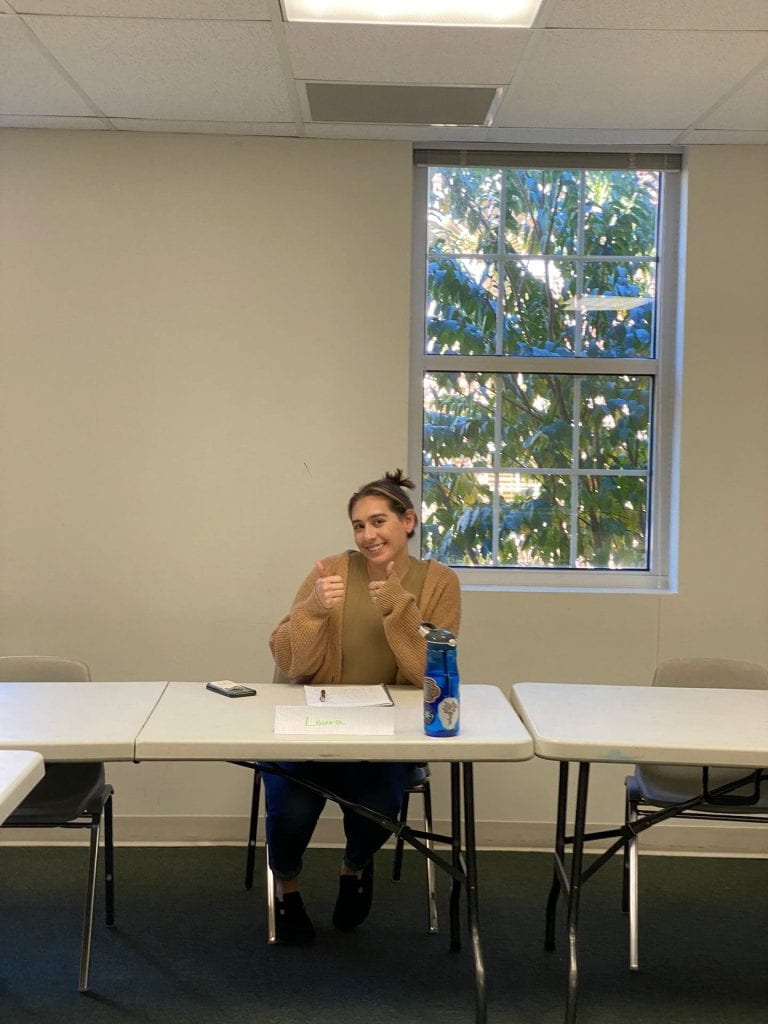
Here is Laura at the back center of the room. With her list of questions, since she was the monitor.
We were able to mingle with focus group participants as they filtered into the room, getting to know each other a little bit in the hopes that they would feel more comfortable with us. One of the most difficult aspects of this research is ensuring that we are sensitive to the stories that people share with us and show how grateful we are for their willingness to share in the first place. Working on a topic that requires deep emotional intelligence and empathy is very humbling and I hope I can do right by the people I met. It was cool for me to see just how much these people wanted to give back to Kidz2Leaders, claiming it was the least they could do for an organization that had done so much for them.
My advice for IDEC students who are looking to choose and plan their thesis work is to start early. There are many instances in which getting a head start helps you with your project. Maybe this means talking to different professors early on about thesis topics or maybe it means planning out your IRB application early on. Either way, it’s helpful to get the ball rolling early so that you can take your time to ensure you have a good project. In my opinion, this also helped me to stay flexible when changes to the plan inevitably happened. For my project, I wish I had studied more on how to conduct a focus group. While Laura and I were able to study this before we left and did a fine job with our focus groups, I still do think it would have been better to use more resources early on in the planning process.
Laura Pettinger, MS IDEC ‘23
Hi! My name is Laura Pettinger. I am a 2nd-year IDEC student. As an undergrad, I went to Seattle Pacific University (SPU) and studied Business Administration & Economics. I was part of two honor societies, the SPU IVY Honorary Mortar Board and the National Honors Society for Economics (Omicron Delta Epsilon). I always wanted to go to graduate school but wasn’t quite sure what I wanted to do, so once I graduated, I started working. I still have my job as an assistant to a financial advisor at MassMutual, where I focus on the investment and client-facing side of the business. Working for a couple of years has allowed me to gain soft and technical skills and given me the financial ability to continue my education.
My summer field research experience took place at the end of September 2022. My favorite part of the field research experience was being able to listen to different people’s stories and listening to how they’ve made decisions in life, their reasoning, and their logic to make certain choices. Behavioral economics is one of my favorite subsections of economics; therefore, the human part of research and the connectivity you experience by speaking to different people sparked my interest.
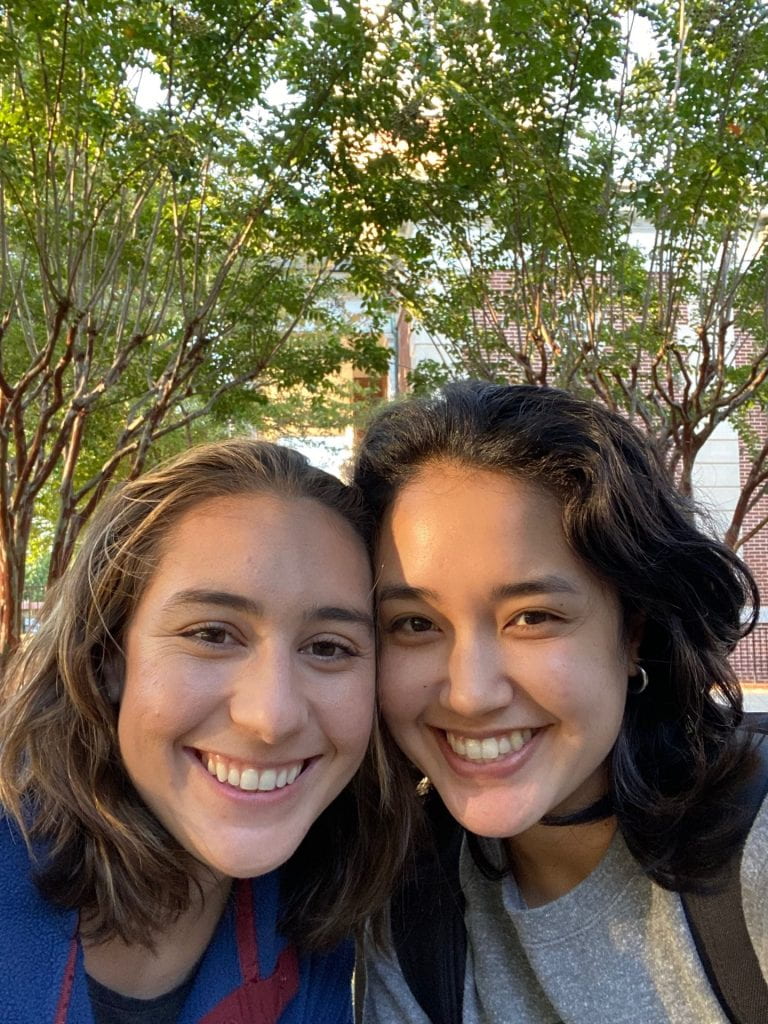
Laura is on the Left, and Alexa is on the right. This photo was taken after one of our focus group sessions.
Alexa is my research partner, and having her has made this experience so much better. Having someone to be accountable to and structure time to work with has helped. Alexa and I came across some challenges during our fieldwork. The major one we experienced was date changes from when we thought we were going to the field to when we went. It just changed our timeline of when we could get things done. Working with public government data sets has also been a challenge just of the sheer volume of information we are working with. Outside of the actual conduction of the focus groups, was seeing our old professor who is now teaching at Emory University. Meeting his wife and hanging out with them was very special.
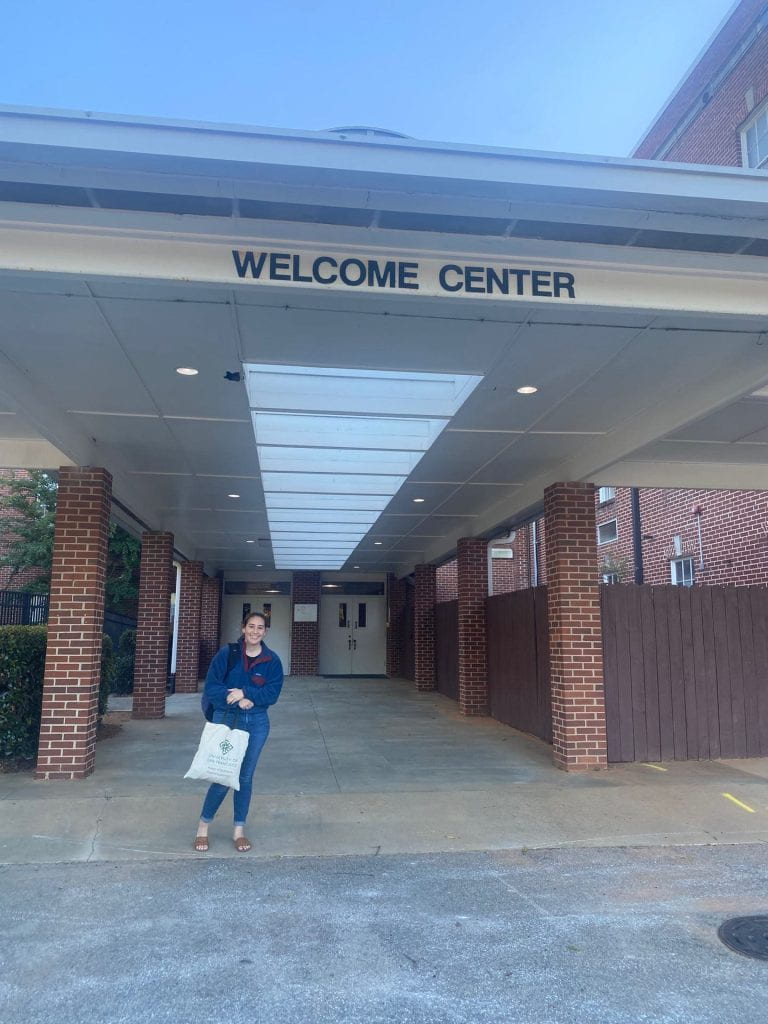
Here is Laura at the front of the welcome center at the church where the focus groups were being conducted.
My advice for any students planning to go to the field is to plan as early as possible. Things are subject to change, so when you have a plan and as much logistically figured out, the curve balls you will face are less taxing and more manageable to navigate. Start and submit your IRB as soon as possible. Changes, clarification, and updates will need to be made, so if you get that approved as fast as possible, you can hit the ground running a lot sooner. Pick an advisor you will be able to work well with because you will be communicating with them a lot for a year and a half. Choose a topic you are passionate about. You will spend a lot of time reading and thinking about the information, so make sure you are curious about the subject you are about to dive into. If it doesn’t interest you, you won’t be able to work on it.
SOME MORE PICTURES!
